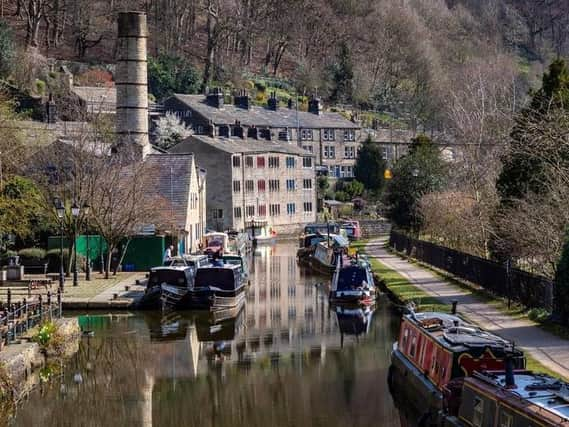Hebden Bridge a 'cesspit'? A paradise of art and creativity more like - Anthony Clavane


Cool and quirky are two favourites of the cool magazines and quirky broadsheet sections. As are liberal, arty, funky, hippy, louche, independent, non-conformist and cosmopolitan.
Every now and then, revolutionary is thrown in for good measure.
Advertisement
Hide AdAdvertisement
Hide AdI have to admit there was one word I never expected to be associated with the former mill town. Cesspit.
Not as in: a pit for the disposal of liquid waste and sewage. More likely, in this instance: a disgusting or corrupt place.
Yes, for those who missed it, the latest battle of the culture wars has broken out in the rolling hills of West Yorkshire.
The media has had a great deal of fun reporting the clash between the small village of Cornholme and the “fourth-funkiest place on the planet”, as one quirkily-hip website has crowned Hebden Bridge.
Advertisement
Hide AdAdvertisement
Hide AdThe world of Twitter lit up in response to a photograph of an all-caps message railing against the “pornographic” books which had been discovered in a book-swap box in Cornholme.
The author of the note, which had been carefully stuck to the box, launched a gratuitous attack on the neighbouring den of debauchery, insisting: “Cornholme is a good god fearing village. If this filth is to your liking may we suggest that you move to the cesspit that is Hebden Bridge.”
This seems, to say the least, a bit harsh.
It prompted a rejoinder which countered: “Hebden Bridge is a good free thinking town.”
The author of the new note joked about being a haven of drug cultivation, devil worshipping and knitting and suggested critics “move to the god bothering uptight holier-than-thou village of Cornholme”.
The spat went viral on social media.
Advertisement
Hide AdAdvertisement
Hide AdThis all happened last week and, now that the dust has settled, I feel the need to make a calm, considered choice about which side I’m on.
Earlier this week whilst running, with my fellow writer Nick Stimson, an Arvon online masterclass for reluctant writers, I found myself waxing lyrical about the charitable organisation.
Established over 50 years ago, Arvon is rightly celebrated for its unique ability to discover and develop the writer in everyone. For over a decade, Nick and I taught on courses at the Lumb Bank centre.
We were influenced by a famous scene from the film Kes. The English teacher, played by Colin Welland, encourages the downtrodden Billy Casper to talk about his kestrel to the class.
Advertisement
Hide AdAdvertisement
Hide AdBilly’s opening up is a triumphant moment, an epiphany of hope. We were both committed to unlocking our students’ creativity and helping them find their voices. Throughout the week, they had no access to television, radio or the internet. All they had to accompany them were their own imaginations.
The centre, temporarily closed during the Covid-19 crisis, is based in an 18th-century mill owner’s house – which also once belonged to the great poet Ted Hughes. I used to enjoy making the precipitous climb up a steep lane to the beautiful village of Heptonstall.
And then, on the way back down, passing Sylvia Plath’s grave and the octagonal chapel where John Wesley preached, I would be back on the bohemian streets of Hebden Bridge, marvelling at its boutique shops, amazing galleries, pavement cafés and tea shops oozing old-fashioned charm.
These were weekly courses, and this is how I would spend my afternoons off.
Advertisement
Hide AdAdvertisement
Hide AdI remember one trip to The Book Case where someone told me how, in the late 1960s, the town had been transformed by the artists, hippies and squatters who took over its derelict mills and houses.
It proudly stocked titles by the successful local publishing company Bluemoose Books; like almost every shop in Hebden Bridge, it is independent.
It’s pretty obvious, really, which side I’m on in the Calder Valley culture wars.
As Bluemoose co-founder Kevin Duffy puts it, his town is a haven for artistic and creative people. It is, he added, a place loved by “artists, hippies, counsellors, writers and poets”.
His alternative description to cesspit is “fountain of creativity”.
I have an even better word. Paradise.
Comment Guidelines
National World encourages reader discussion on our stories. User feedback, insights and back-and-forth exchanges add a rich layer of context to reporting. Please review our Community Guidelines before commenting.